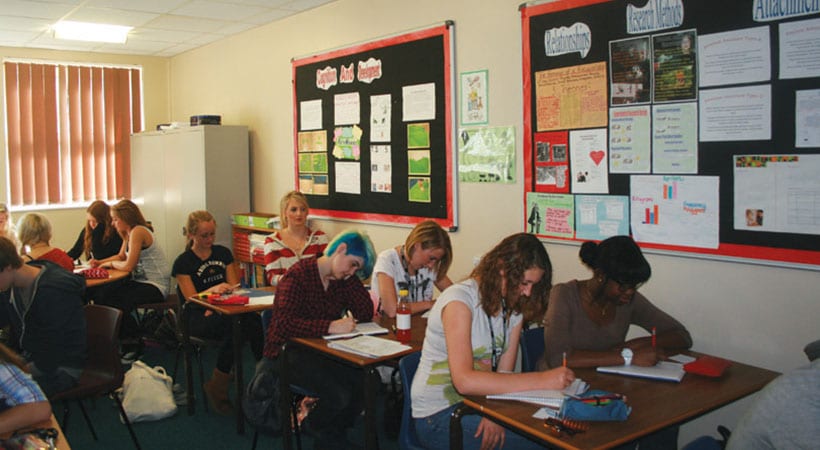What are the entry requirements?
5 GCSEs at A*- C to include English (Grade B), Maths (Grade C) and Science (Grade C).
Course Outline
AS:
Paper 1: Introductory Topics in Psychology; Social influence, Memory, Attachment
Paper 2: Psychology in Context; Approaches in Psychology, Psychopathology, Research methods
A2:
Paper 1: Introductory Topics in Psychology; Social influence, Memory, Attachment, Psychopathology
Paper 2: Psychology in Context; Approaches in Psychology, Biopsychology, Research methods
Paper 3: Issues and Options in Psychology; Issues and debates in Psychology, Cognition and development, Stress, Forensic Psychology
How will I be assessed?
As:
Two written exams; 1 hour 30 minutes per exam, 72 marks per exam. Multiple choice, short answer and extended writing questions.
A2:
Three written exams; 2 hours per exam, 96 marks per exam. Multiple choice, short answer and extended writing questions
What will I study?
The AS and A-Level courses are co-teachable with numerous compulsory topics including:
Social influence; Types of conformity, Conformity to social roles, Explanations for obedience, Explanations of resistance to social influence, Minority social influence, The role of social influence processes in social change.
Memory; The multi-store model of memory, Types of long-term memory, The working memory model, Explanations for forgetting, factors affecting the accuracy of eyewitness testimony, Improving the accuracy of eyewitness testimony
Attachment; Caregiver-infant interactions in humans, Animal studies of attachment, Explanations of attachment, Ainsworth’s ‘Strange Situation’ and types of attachment, Bowlby’s theory of maternal deprivation, The influence of early childhood attachment on childhood and adult relationships.
Psychopathology; Definitions of abnormality, The behavioural, emotional and cognitive characteristics of phobias, depression and obsessive-compulsive disorder. The behaviourist approach to explaining and treating phobias, The cognitive approach to explaining and treating depression, The biological approach to explaining and treating OCD.
Approaches in Psychology; The origins of Psychology and the emergence of Psychology as a science, The basic assumptions of the learning approach, the cognitive approach and the biological approach
Biopsychology; The division of the nervous system, the structure and function of sensory, relay and motor neurons, The function of the endocrine system, The fight or flight response.
Research methods; Experimental methods, Observational techniques, Self-report techniques, Correlations, Scientific process, Techniques of data handling and analysis.
In addition, during their second year, A-Level students will also study;
Approaches; The Psychodynamic approach, Humanistic Psychology
Biopsychology; Localisation of function in the brain and hemispheric lateralisation, Ways of studying the bran, Biological rhythms.
Research methods; Content analysis, Case studies, Features of a science, Reporting Psychological investigations, Inferential tests
Cognition and development; Piaget and Vygotsky’s theories of cognitive development, Baillargeon’s explanations of early infant abilities, The development of social cognition.
Stress; The physiology of stress, the role of stress in illness, sources of stress, measuring stress, individual differences in stress managing and coping with stress.
Forensic Psychology; Problems in defining crime, Offender profiling, Biological explanations of offending behaviour, Psychological explanations of offending behaviour, Dealing with offending behaviour.
Where can it lead me?
The specification lays an appropriate foundation for further study of Psychology and related subjects in higher education e.g. criminology, forensics, psychiatry, law, education, teaching and many more… Equally, material studied would be useful for candidates intending to pursue careers in the police, the health services, social services and human resources/personnel.





